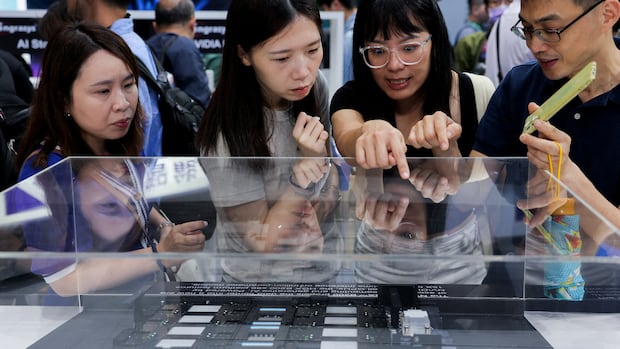The microchip fabrication plants, or fabs, inside the futuristic warehouses that line the leafy streets of Taiwan’s Hsinchu Science Park are so secure and sealed off from the outside that visitors are strictly controlled.
Inside, dust-free labs house robotic machines that etch silicon wafers with nano-level precision, creating the world’s most advanced processors.
Artificial intelligence databases, iPhones, cars and practically every other piece of digital technology in existence depend on them.
No other place on the planet comes even close to Taiwan’s technological successes in the manufacturing, or foundry, market.
A single company, Taiwan Semiconductor Manufacturing Company, or TSMC, is estimated to control about 70 per cent of the world's chip market — and an astounding 90 per cent for the most advanced chips.
It's a remarkable achievement for an island of 23 million people that in the eyes of most of the world’s nations doesn’t officially exist.
Canada, like all but a dozen or so small states, recognizes the People’s Republic of China’s government in Beijing but not Taiwan, which China sees as a breakaway province.
Taiwan college student Amy Lin speaks to CBC News in Taipei. (Angela Johnston/CBC)
Lately, though, for many Taiwanese, that lack of recognition has felt like le
Continue Reading on CBC News
This preview shows approximately 15% of the article. Read the full story on the publisher's website to support quality journalism.
